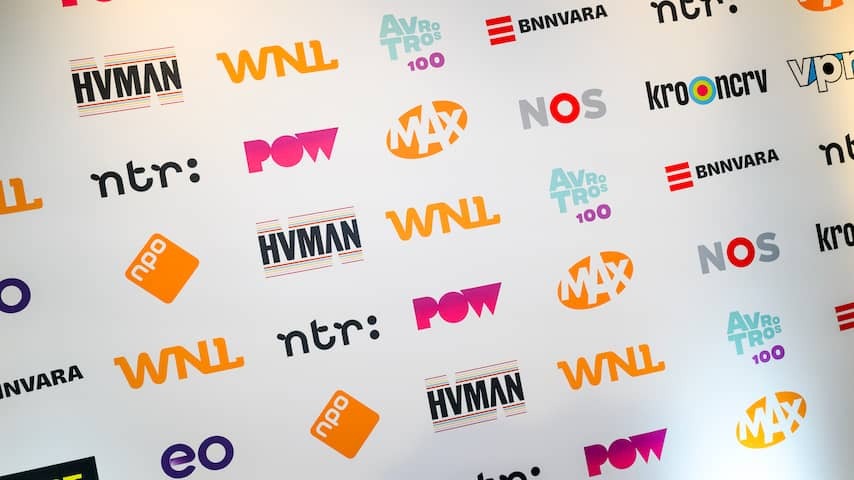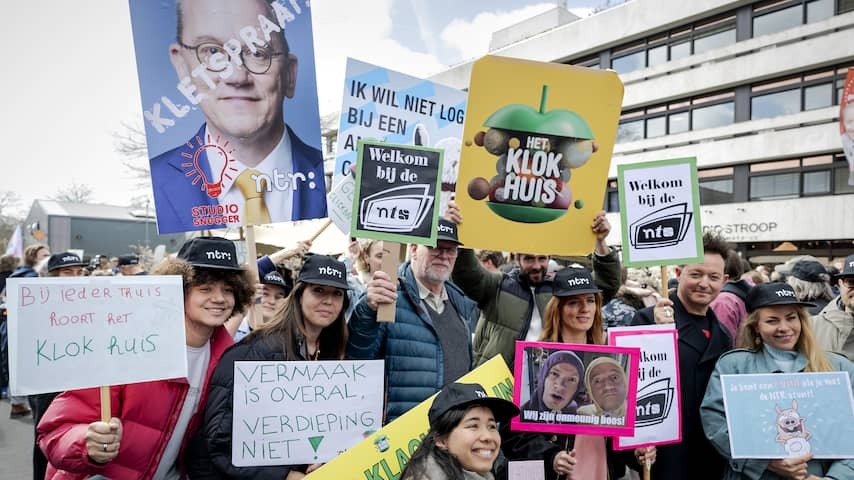
The public broadcaster is undergoing a shake-up. The thirteen broadcasters will be clustered into four to five broadcasting houses, and no new broadcasters will be added. The plan caused quite a stir among the broadcasters in Hilversum, who now have to work it out together.
On April 4, (now caretaker) Minister Eppo Bruins of Education, Culture and Science (OCW) announced the reform plans for the national public broadcaster. The number of players in the broadcasting system must be drastically reduced, he stated. The current thirteen broadcasters must merge into a maximum of five broadcasting houses. It almost cost NTR, the broadcaster behind Het Sinterklaasjournaal (The Santa Claus Journal), its head. After heavy protest, that broadcaster may now merge with NOS.
The reforms are “necessary,” says a spokesperson for the Ministry of OCW in conversation with NU.nl. This is the only way the public broadcaster will be ready for the future. Professor of journalism science Irene Costera Meijer agrees with this in principle. “Developments in the field of digitization and social media require essential changes in the organization of the public system. However, this reform task is not compatible with the announced millions in budget cuts.”
Thirteen broadcasters may not be necessary, says Costera Meijer. “But I fear that the unique democratic character of our broadcasting system will be lost if smaller broadcasters such as ZWART, EO, and VPRO, but also Ongehoord Nederland! (Unheard Netherlands!) will soon have less to say within the broadcasting houses.” The professor is a proponent of a system of public media that are formed from the grassroots and of which people become members because they value or miss a certain perspective or content.
Media historian Huub Wijfjes calls the creation of the broadcasting houses a complicated task. For example, he wonders who wants to work with the controversial Ongehoord Nederland! “The quality of that broadcaster is substandard,” says Wijfjes. The media historian thinks that the broadcaster will remain isolated and may disappear from the broadcasting system. It is not known if there are concerns at the broadcaster, which is not responding to our email.

‘Clustering possible based on identity and audience’
Costera Meijer believes that there is also a place for Ongehoord Nederland! in the broadcasting system. “Provided they respect the rules of law and the principles of journalism. What they are not doing well is that they are a mouthpiece for the extreme right. Viewers mainly hear their opinion echoed, but they can also read that on X. A public media organization has a different task than repeating opinions.”
A clustering of broadcasters based on a similar identity and target group is quite possible, says Wijfjes. “It would therefore be obvious for KRO-NCRV and EO to merge based on their Christian background.”
“The VPRO is a more cultural broadcaster, while BNNVARA has a more political-social profile. But the two can find each other in the young, mainly progressive-thinking audience they serve. ZWART fits in terms of profile with both BNNVARA and NTR, but it is more likely that the task broadcasters NTR and NOS will merge. The broadcasters will undoubtedly think differently about it. But they will have to if there are a maximum of five broadcasting houses,” says Wijfjes.
Involved parties reported to NRC that the EO, which represents the orthodox movement within Protestantism, does not want to merge with the half-Catholic KRO-NCRV. The VPRO, in turn, would not want to merge with BNNVARA “for fear of being overshadowed by its larger brother.”
Broadcasters show willingness in exploratory talks
A spokesperson for the EO tells NU.nl that “many” talks are currently being held with various broadcasters. “A definitive choice must ultimately follow from this, but we are not yet at that point. Nothing is excluded in advance either.”
The VPRO also shows willingness. The broadcaster says that it is conducting “exploratory” talks with various broadcasters, including BNNVARA, together with HUMAN. “The VPRO has not yet made a decision with which party, other than HUMAN, we will form a broadcasting house.”
Omroep MAX boss Jan Slagter said earlier in the program Van Roosmalen en Groenteman that he would like to form a broadcasting house together with WNL, because of the current collaboration between the two broadcasters. A spokesperson for MAX tells NU.nl that Slagter still stands by his statement. An illogical choice, according to Wijfjes.
“They serve a completely different audience. Omroep MAX is aimed at the elderly and is apolitical. The programs should mainly be fun and light-hearted. A big contrast with the right-conservative journalistic WNL.” The media historian sees more similarities between WNL and AVROTROS, or MAX and AVROTROS.
‘Larger broadcasters will pass the buck to the smaller ones’
AVROTROS does not want to comment in the interest of the talks. Earlier, the broadcaster announced that it wanted to form the first broadcasting house together with PowNed. The two broadcasters already work together in certain areas, such as ICT, legal affairs, finance, and HR.
Former interim director of the NTR Meindert Landsmeer coordinates the clustering of broadcasters. His advice is expected in October. It is not the first time that broadcasters have been forced to merge. After a cut of 200 million to the broadcasting budget in 2012, AVRO and TROS, BNN and VARA, and KRO and NCRV already merged. The task broadcasters NOS and NTR then remained independent, as did EO, VPRO, and Omroep MAX.
Wijfjes expects that the broadcasters that merged more than ten years ago will pass the buck to the others during the exploratory talks. The larger broadcasters will believe that the smaller ones must give in, Costera Meijer also thinks. “That is why I hope for extra protection for the small broadcasters, also for Ongehoord Nederland!.”
The professor of journalism science does not expect the extensive plans to end up in the trash after a new cabinet takes office. “In itself, reform is necessary, but reducing the number of broadcasters will not be enough to make the public broadcaster future-proof. More money is needed for that, instead of cuts.”